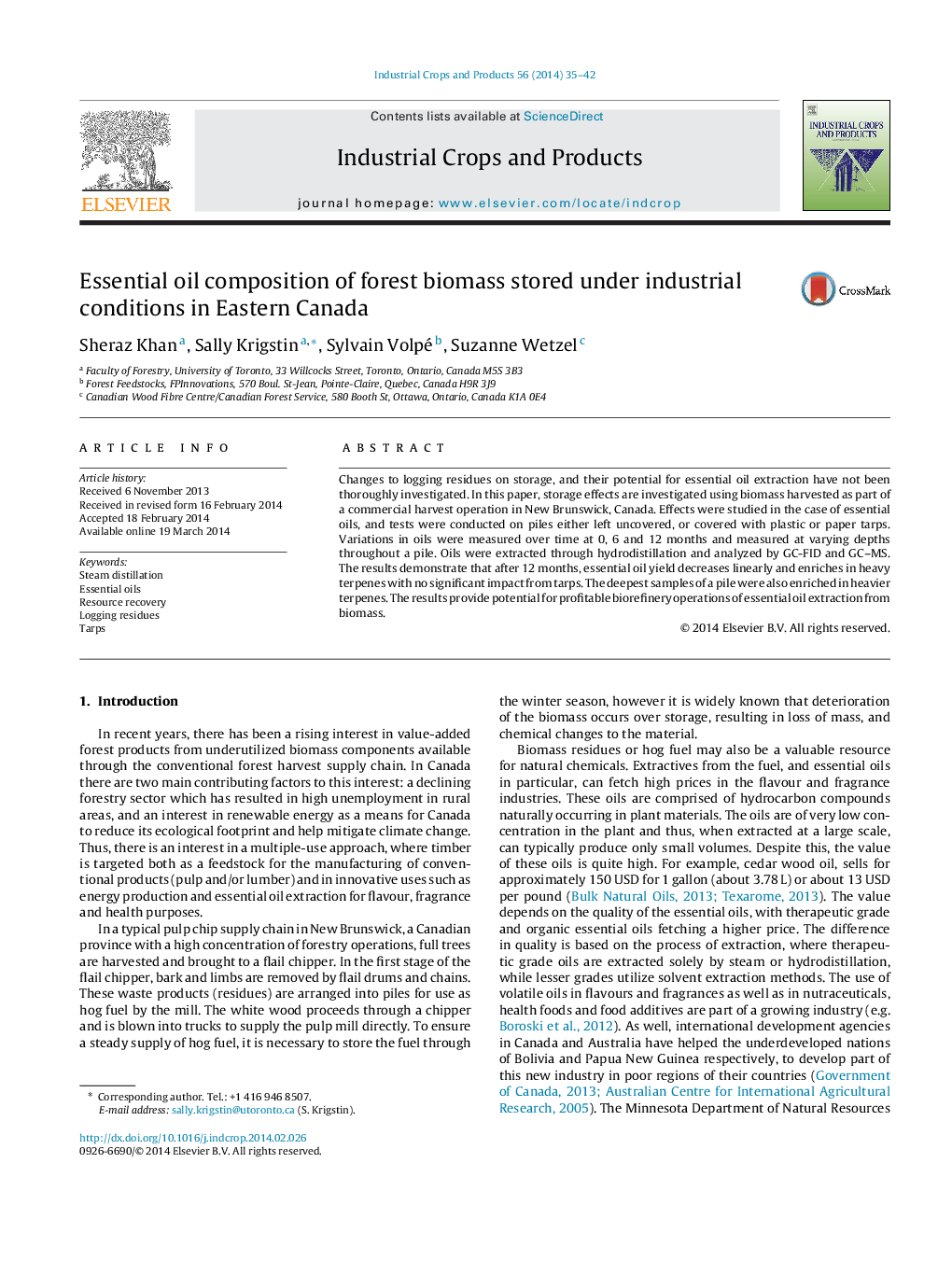| Article ID | Journal | Published Year | Pages | File Type |
|---|---|---|---|---|
| 4513290 | Industrial Crops and Products | 2014 | 8 Pages |
•Essential oil yield from biomass decreases quickly when stored outdoors.•Tarp coverage (plastic or paper) does not affect yield or composition of oils.•Oils extracted early after harvest are enriched in monoterpenes.•Stored piles have differing oil composition at their surface than their interior.•Potential exists for value addition to biomass based on essential oil yield.
Changes to logging residues on storage, and their potential for essential oil extraction have not been thoroughly investigated. In this paper, storage effects are investigated using biomass harvested as part of a commercial harvest operation in New Brunswick, Canada. Effects were studied in the case of essential oils, and tests were conducted on piles either left uncovered, or covered with plastic or paper tarps. Variations in oils were measured over time at 0, 6 and 12 months and measured at varying depths throughout a pile. Oils were extracted through hydrodistillation and analyzed by GC-FID and GC–MS. The results demonstrate that after 12 months, essential oil yield decreases linearly and enriches in heavy terpenes with no significant impact from tarps. The deepest samples of a pile were also enriched in heavier terpenes. The results provide potential for profitable biorefinery operations of essential oil extraction from biomass.
